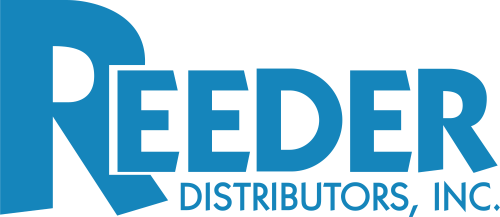A single event can affect lives for generations.
In 1973, Arabs and Israelis fought a war. For supporting the Israelis, Arab nations embargoed oil shipments to the United States. In the supply crunch, an uncle in Texas ultimately sold his oil refinery. A nephew on the payroll wondered about his future, yet saw an opportunity. He borrowed $5,000, started a business by brokering scarce fuel supplies to convenience stores, and engaged common carriers to make deliveries.
In time that business grew, purchased its own delivery fleet, shifted into wholesaling, became a regional fuel distributorship with a diverse clientele, and branched into complementary lines of business. The young man married and had two sons. And today, nearly half a century after its founding, the business has been passed to a second generation and continues to grow. That business is Reeder Distributors of Forth Worth, Texas. Its founder, the young nephew who in 1973 saw an opportunity in the midst of a crisis, is Gary Reeder. He recalls of those days, “I had nothing when I started. My initial office was an engineer’s shack. I’d broker during the day and deliver in the afternoon and at night. I’d drive, load trucks, dispatch, do manual labor, whatever needed to be done.
”His story continues to inspire his sons, Jason and Brent, who recently transitioned into co-owners of the family business. “We grew up in Dad’s office and did jobs from sweeping floors to painting tanks. Our father gave us a strong work ethic,” remembers Brent Reeder. At the same time, Jason appreciates how “our father’s philosophy was to hire the right people.
Then, rather than micromanage, he’d empower them to succeed. That’s how Brent and I were able to learn the business and eventually take it over as a second generation.
”Today, Reeder Distributors wholesales unbranded fuel products—diesel, gasoline, kerosene, alcohol, racing fuel—across Texas, Louisiana, Oklahoma, and New Mexico. Customers span the trucking, commercial, industrial, oilfield, construction, agricultural, and government sectors. Another Reeder division provides a unique service, helping fleet owners design, build, and outfit their vehicle maintenance and repair shops.
“The fact that we have a thriving business started with our father’s entrepreneurism,” says Brent Reeder, “but our foundation is also due to two other legacies he gave us.” As Jason Reeder goes on to explain, “Dad was fiscally conservative so that we’ve always been profitable and our growth sustainable. But most of all, he was committed to our employees. So, we inherited great people who bring experience and enthusiasm.
Technology and Longevity
As co-owners, Brent Reeder focuses on the fuel side of the business and Jason on fleet services, equipment distribution, and shopfitting. Yet the two remain in constant communication about the overall direction of the business. After their father turned over the reins, the two brothers slipped seamlessly into the lead roles—but did face one pressing challenge.
“With our dad, not much technology was in place,” relates Brent Reeder. “So, Jason and I had to transition from paper-based processes to 21st-century technology.” But despite starting out behind, the update has been swift and effective. Today, Reeder Distributors provides bulk fuel deliveries and onsite fueling services that are electronically tracked from order and delivery to invoicing and payment.
Many customers take advantage of fuel monitoring and inventory management tools offered through Reeder Distributors. “You can easily monitor your fuel usage in real-time data and set up automated deliveries, unauthorized usage alerts, and delivery alerts to make sure your fuel is in the right place at the right time,” says Brent Reeder. “And by using our tools, you can analyze and monitor your fuel use, automate deliveries to eliminate any downtime, and take advantage when fuel prices fluctuate.
”Similarly, the Reeder fleet card gives fleet owners the tools to control fuel types purchased, gallons per transaction, and transactions per day. “You can track drivers’ frequency of fueling by time of day and days of the week, so you can improve driver habits,” notes Jason Reeder. “You can see odometer entries and track fuel efficiency. And you can set up email alerts to flag anomalies. Our fleet card system is also backed by Reeder’s customer service, to help you determine and implement the purchase controls you need.
”Though customers today expect 21st-century technology, Brent Reeder says what sets his company apart is its people. “The average tenure of our sales representatives is 10.3 years,” he reports. “There’s a lot of consolidation among independent marketers, including distributors.
But that means customers have to deal with turnover in sales reps. Yet the longevity of our people means that we’ve maintained our relationships. Customers like dealing with the same reps and have stayed with us.
Design and Build
In recent years as Reeder’s divisions have grown, reports Brent Reeder, “our diversified business model evens out the natural peaks and valleys of the business cycle. Also, despite the COVID pandemic and dip in fuel demand, we haven’t seen much of a dip because many of the fleets we serve operate on government contracts.”
Opening three additional sales offices outside the Dallas/Fort Worth metroplex, plus equipment distribution and service facilities in Houston and Midland/Odessa, has helped grow the business. And in 2005, Reeder Distributors entered “what was at first a niche—shopfitting—but has now exploded,” says Jason Reeder.
Sixteen years ago, Jason saw an opportunity. Reeder Distributors was already an established fuel supplier to the transportation sector through bulk deliveries and onsite fueling. “How vehicles are maintained has a lot to do with their fuel usage,” he notes. “But they were on their own, as far as their shops. A shop can be anywhere from 10,000 to 90,000 square feet and can cost up to $2 million to build and outfit. But with today’s sophisticated vehicle technology, you can waste a lot of time and money if your shop isn’t done right.”
At first, Reeder Distributors loaned out shop equipment to customers—and quickly discovered an unmet need in the market. By 2008, after the company moved into equipment sales and distribution, the next step was obvious. “We could not only sell them the shop equipment,” continues Jason Reeder. “We could help design their shop, build their shop, and then service and maintain the equipment.”
While Reeder Distributors’ service extends from the flooring to the lighting and everything in between, “it’s more than just construction and installation,” adds Reeder. “We help customers understand their market. For example, a car dealer needs to design and build a shop that their market can support. Not enough bays—or too many—can be costly to their business. Our customers know transportation and know vehicles. But that doesn’t mean they’re experts in choosing the right shop design, construction, and equipment.”
Today, Reeder’s shopfitting division serves both heavy- and light-duty applications. The company has designed, built, and outfitted heavy-duty shops for fleet owners, school districts and municipalities, as well as light-duty shops for car dealers. In addition, Reeder Distributors builds and outfits onsite fueling facilities.
“We don’t build a fleet owner’s offices or warehouses, or a car dealer’s showrooms,” notes Reeder. “But when it comes to the shop, a general contractor isn’t an expert on the design and equipment. We’re the experts—and we save customers money by having a turnkey solution.
Growth and Preservation
Though Reeder Distributors has long been a SIGMA member company, says Brent Reeder, “Our involvement lapsed for a while. But in recent years we’ve gotten back involved and really benefited. The networking and professional education are great. We’ve learned a lot from other marketers, and we’ve learned how hedging can help us serve our customers. We’ve also met a lot of fuel suppliers.”
An example in the benefits of association networking occurred in February when Texas was hit with a once-in-a-decade spell of arctic weather than covered the entire state. “All the spot markets for fuel dried up,” reports Reeder. “But our customers still depended on us for the fuel they needed to keep their businesses going. Through our networking and supplier relations in SIGMA, we got the gallons we needed.”
In the three years since Brent and Jason Reeder transitioned into co-owners of the family business, SIGMA professional education programs and networking opportunities “have really helped us navigate expansion into new markets,” says Brent. “Though we don’t see ourselves diversifying into new lines of business that we don’t know, what we’ve learned through SIGMA is giving us confidence to be more aggressive in growing our three divisions and expanding our geographic footprint.”
Jason Reeder agrees, “We have a lot of room to grow organically and expand into new areas of Texas and surrounding states.” For example, from its central Texas base in Dallas/Fort Worth, Reeder Distributors has expanded its presence as an equipment distributor, east into Houston and west into Midland/Odessa. In turn, that sets up expanded cross-selling opportunities. Equipment customers in east and west Texas are now prime prospects to also buy fuel. “We maintain separate sales forces for the fuel side and the equipment side, because the expertise is different for each area,” adds Brent Reeder. “But as each side expands, it creates new prospects for the other side. So, the two divisions, fueling and equipment, support each other.”
In this, the Reeder brothers emulate the management philosophy of their father—to hire the right people and empower them. “Employee training is a huge contributor to our success,” relates Brent Reeder. “For example, we educate our fuel sales reps on the properties of different fuels and additives, from ethanol to biodiesel, so they know what happens in the storage tank.”
The overarching principle, Reeder continues, is “selling fuel not just as a commodity, but as a service. If we can advise customers on what fuel filters work best, or at what temperatures certain fuels start to gel, we can reduce their downtime and help them be more profitable.”
For their part, the Reeder brothers continue to benefit from their father Gary who, as company founder, remains active as an advisor. “As part of transitioning the company stock from our dad to us as co-owners,” relates Jason Reeder, “a focus was also preserving the business for our own kids. So, we put stock into two multi-generation trusts that cover two more generations. Our dad gave us a strong foundation and a strong work ethic. Now we can use those and, from what he started nearly 50 years ago, preserve his legacy for a third and fourth generation.”





